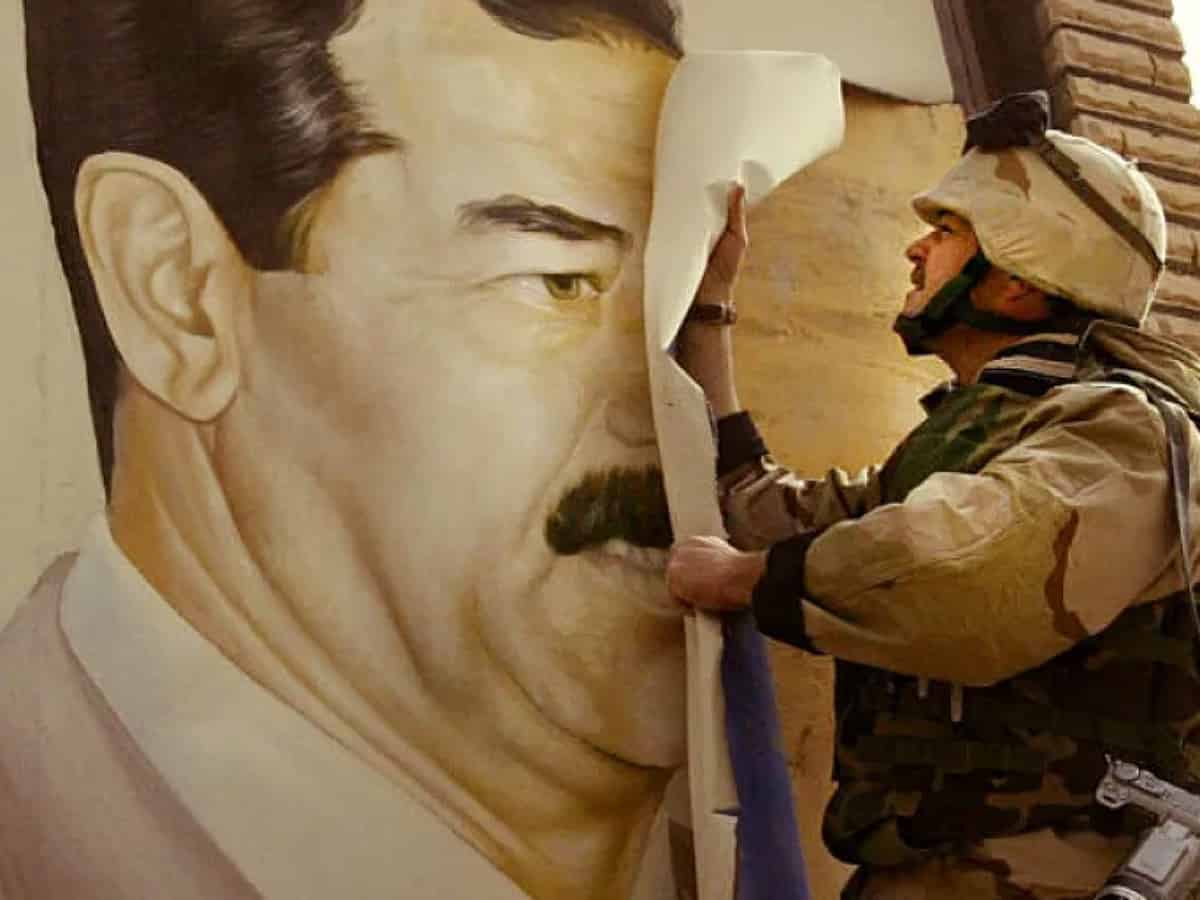
Baghdad: Twenty years after the American invasion of Iraq, the Arab country is still suffering the consequences of the invasion, which it claimed came under the pretext of establishing a democratic system that could be generalized to all countries in the region and rid the country of the rule of the late President Saddam Hussein (1979-2003).
On March 20, 2003, an international coalition led by the United States (US) launched a military operation to overthrow Saddam’s regime, and despite its overthrow on April 9, 2003, the American presence continued for two decades, with multiple declarations of withdrawal and then return.
On May 1, 2003, President Bush declared “mission accomplished” aboard the USS Abraham Lincoln aircraft carrier and ended major combat operations in Iraq.
Before the end of 2003, Saddam was caught by US forces hiding in a ditch near his childhood home in Tikrit. He was later tried by an Iraqi court and executed for his role in the mass killings and crimes against humanity.
The date chosen for his execution, December 30, 2006, which happened to be the first day of Eid al-Adha, has been controversial ever since.
Every year on March 20, millions of Iraqis, along with millions of others around the world, remember the invasion of Iraq, the most significant event that shook the Gulf region, the Middle East, and the world at large in the first decade of the 21st century.
Human Rights Watch in a report published on Sunday, considered that “the Iraqi people paid the highest price for the invasion.” The organization urged “the parties to the conflict to compensate the victims and hold the perpetrators accountable,” but “impunity still exists.”
According to the Iraq Body Count, from 2003 to 2011, the date of the withdrawal of US forces from Iraq, more than 100,000 Iraqi civilians were killed and the United States lost nearly 4,500 of its personnel in Iraq.
Iraq is still suffering from the consequences of the decision of the Civil Coalition Authority, led by US Ambassador Paul Bremer, to form the nucleus of the Ministries of Defense and Interior from militia elements, whether those founded in Iran or those formed immediately after the invasion.
After 20 years, the specter of service shortages and corruption looms, leading Iraqis to look pessimistically towards the future, while the threat of climate change, water scarcity, and desertification looms large on the horizon.
From bad to worse
Although Iraq is an oil-rich country, a third of its 42 million people still live in poverty, with unemployment high among the youth.
Iraqis believe that conditions in Iraq in general have not improved enough, whether at the level of the economy, infrastructure, services, community unity, or state sovereignty.
An Iraqi academic told the Anadolu News Agency that after the fall of Saddam, Iraqis hoped that changing his authoritarian, dictatorial regime would build a new state for them, based on democracy and the fair distribution of wealth.
He added, “After two decades, the change produced a lame political process, tainted by financial and administrative corruption, sectarian quotas, and the sharing of resources between the influential powers.”
This is while the vast majority in Iraq live under the burden of deteriorating services, the prevalence of uncontrolled weapons, corruption gangs, and organized crime gangs, according to the Iraqi academic.
The basic rights that have been partially achieved in Iraq, such as freedom of opinion and expression, are among the fundamental rights established by the United Nations and international treaties, which are included in Article 19 of the Universal Declaration of Human Rights.
In October 2019, a large public demonstration called the “October Revolution” took place in the capital Baghdad and other central and southern Iraqi provinces. Every year the protesters continue to demand their rights.
Protesters called for an end to corruption, improved living conditions and public services, job opportunities, a quota system between Shiites, Sunnis, and Kurds, and an end to political power’s dependence on foreign powers, particularly Iran and the US.
